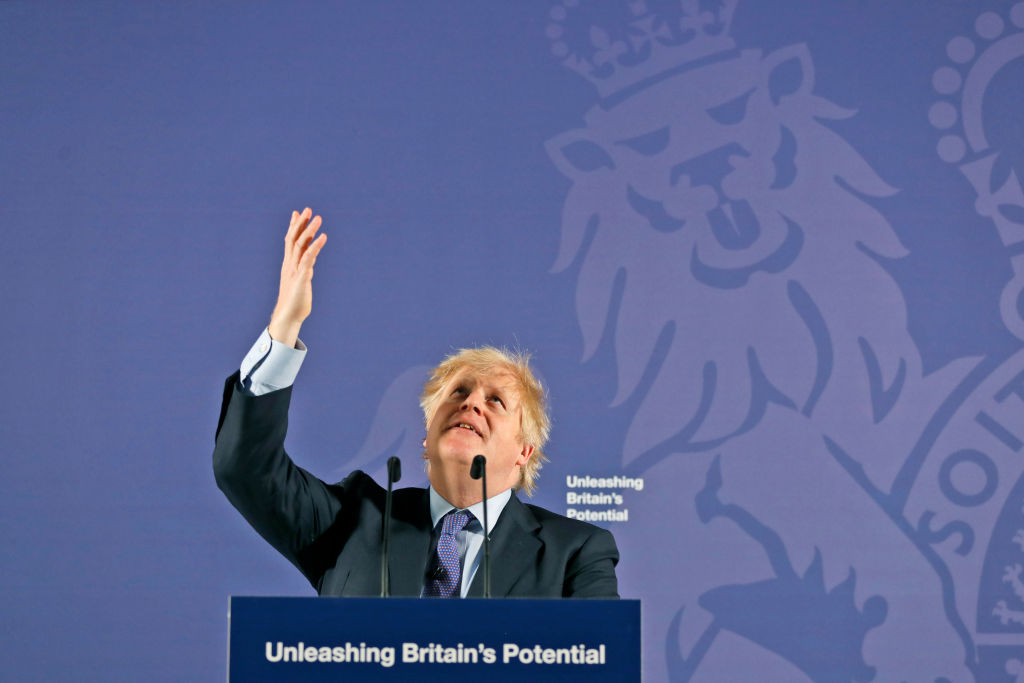The end of the EU’s Brexit bounce
Posted By Mark Leonard on February 21, 2020 @ 11:09

After the United Kingdom voted in 2016 to leave the European Union, policymakers and political leaders across Europe feared that they too would soon face a similar crisis. They worried about a domino effect in which populist movements and politicians would lead other member states out of the EU one by one, effectively reversing a decades-long process of European integration.
But, at least until recently, Brexit had the opposite effect. Much to everyone’s surprise, the EU in the years after the UK’s referendum enjoyed a Brexit dividend. Europeans watched the UK descend into political chaos, with Britons literally stockpiling [1] food and medicine for fear of what the future might hold. EU member states that typically agree on very little suddenly found themselves united behind the European Commission’s negotiating strategy. Support for the EU among Europeans soared [2]. The new joke was that thanks to US President Donald Trump and Brexit, America and Britain had saved the Europeans from themselves for the third time in a century.
But, rather than averting an EU-wide crisis, the Brexit dividend may have merely deferred an inevitable reckoning. In speaking with European presidents, prime ministers and foreign ministers at this year’s Munich Security Conference, one could detect a palpable fear that the costs of Brexit would soon start to outweigh the benefits. Many national politicians and EU-level policymakers are now worried that the dividend will become a liability.
Having reached an agreement on the transition period, British Prime Minister Boris Johnson’s government finds itself in the strange position of being able to claim that it ‘got Brexit done’ without actually having made any of the sacrifices necessary for leaving the EU. Until 31 December 2020, British companies will continue to have full access to the EU single market, Britain will remain in the customs union, and British citizens will be able to travel freely across Europe.
So far, then, the real-world costs of Brexit have been essentially nil. Hence, on the day after Britain’s formal withdrawal from the EU, the pro-Brexit journalist Daniel Hannan could gloat [3] on Twitter that: ‘One day in and so far: No food riots; No medicine shortages; No gridlocked motorways; No migrant camps in Kent; No collapse in house prices; No emergency tax rises; No world war. Weren’t we told that “It’s not Project Fear, it’s Project Reality”?’
With a massive 80-seat parliamentary majority, Johnson has been able to present himself as more statesman-like and dynamic than his European counterparts, many of whom are dealing with political crises of their own. In Germany, the two biggest political parties are in the grips of an ongoing psychodrama, owing to challenges from the Greens on the left and Alternative for Germany on the (far) right. In France, President Emmanuel Macron [4] is pursuing a difficult pension reform [5], and will likely have his nose bloodied in local elections next month. Spain and Italy, meanwhile, have weak and divided governments.
Moreover, Johnson is preparing a populist economic policy package, complete with fiscal stimulus [6] and Trump-like handouts to favoured constituencies. The hope is to engineer an economic upswing that will position the UK to outperform the eurozone, at least in the short term. If the gambit succeeds, populist parties in other EU member states will once again see Britain as a model (rather than a cautionary tale) for their own Eurosceptic causes.
Making matters worse, European leaders will now find it much more difficult to maintain the impressive level of intra-EU unity achieved by Michel Barnier [7], the EU’s chief Brexit negotiator, during the first phase of the talks. Once the EU begins to negotiate the details of a trade and investment deal with the UK, the divergent economic models and security needs of northern, southern, eastern and western member states will be much harder to reconcile. Johnson’s government, embracing the role of Perfidious Albion [8], won’t hesitate to exploit these divisions.
And yet, there can be no doubt that Brexit will hasten the UK’s decline in the medium and long term, leaving the country poorer, more insecure and less influential than it otherwise would have been. Although the transition has been designed specifically to avoid a cliff edge or a single moment of crisis, it will inevitably be remembered as a period of missed opportunities for slowing Britain’s steady slide into middling provincialism. For now, though, this decline will be obscured by Johnson’s infectious bonhomie and public grandstanding, touting the political benefits of Brexit while ignoring the looming costs of leaving the single market.
In the next round of talks, worries [9] French Foreign Minister Jean-Yves Le Drian, the UK and the EU will be trying to ‘rip each other apart’. Whereas Johnson’s political fate rests on making Brexit look like a cost-free success, the EU’s interests run in exactly the other direction. The worse Brexit looks, the easier it will be to fend off Eurosceptic challenges from within the EU.
European leaders are now weaving a new narrative to show that Britain will suffer from its decision. Even with so many other mounting crises—from trade and technology wars to climate change and the re-emergence of Islamic State—the need to convince European voters that Brexit was a bad idea is once again rising to existential importance.
Article printed from The Strategist: https://www.aspistrategist.org.au
URL to article: https://www.aspistrategist.org.au/the-end-of-the-eus-brexit-bounce/
URLs in this post:
[1] stockpiling: https://www.bbc.com/news/uk-england-leeds-46814527
[2] soared: https://www.europarl.europa.eu/news/en/press-room/20190417IPR41755/support-for-eu-remains-at-historically-high-level-despite-sceptics
[3] gloat: https://twitter.com/danieljhannan/status/1223660421514698761?lang=en
[4] Emmanuel Macron: https://www.project-syndicate.org/columnist/emmanuel-macron
[5] pension reform: https://www.project-syndicate.org/commentary/macron-french-pension-reform-by-raphael-hadas-lebel-2020-02
[6] fiscal stimulus: https://www.project-syndicate.org/commentary/boris-johnson-global-shift-from-monetary-to-fiscal-policy-by-robert-skidelsky-2020-02
[7] Michel Barnier: https://www.project-syndicate.org/columnist/michel-barnier
[8] Perfidious Albion: https://www.jstor.org/stable/2707704?seq=1
[9] worries: https://www.ft.com/content/f29c5b3c-50d8-11ea-90ad-25e377c0ee1f
Click here to print.